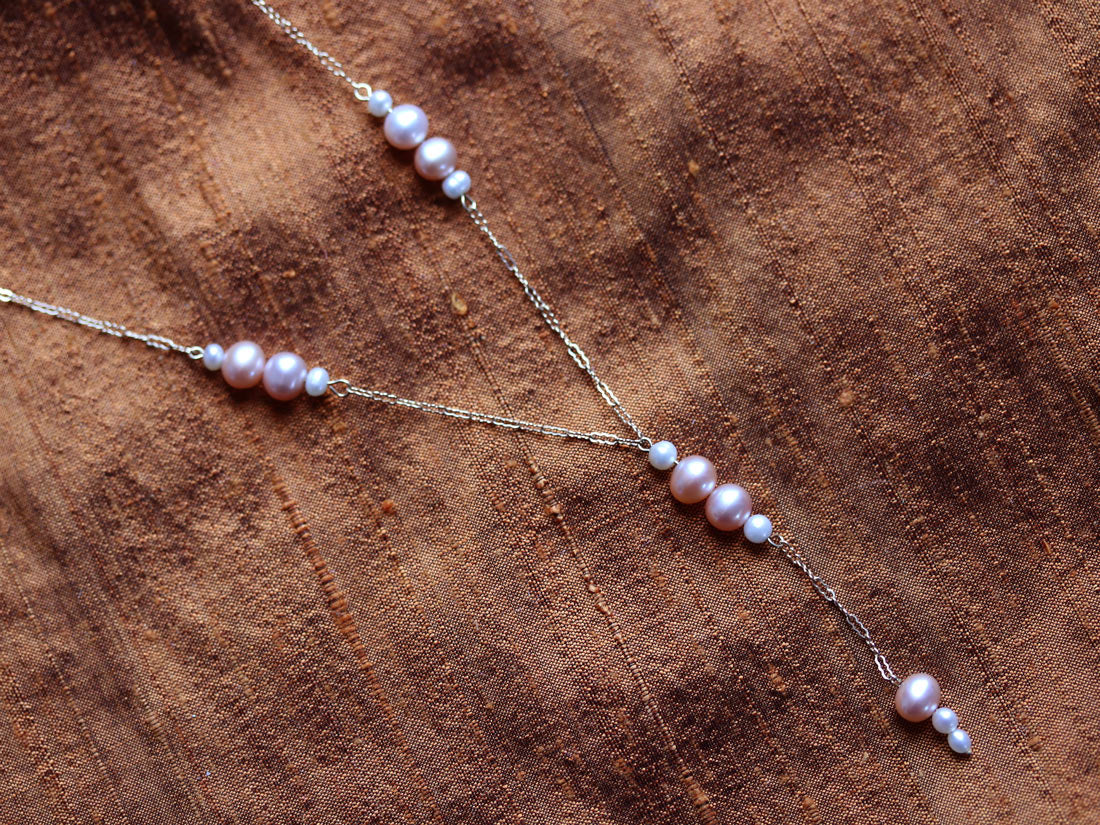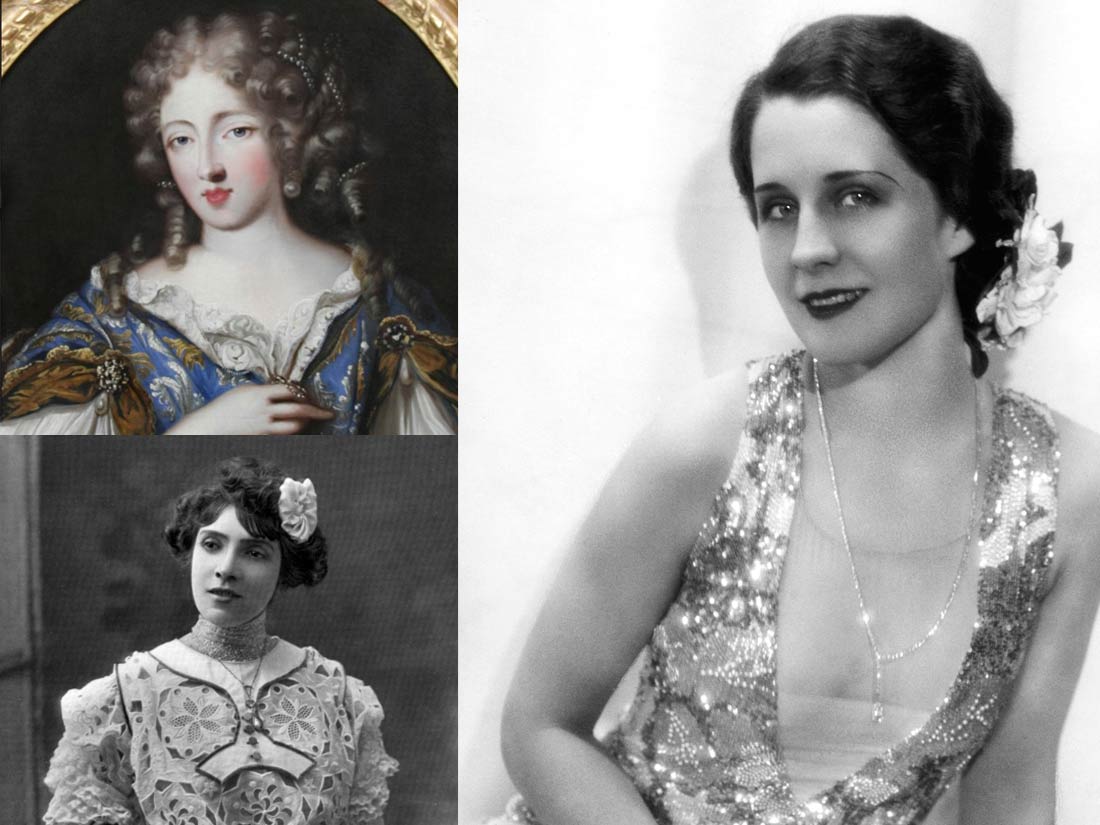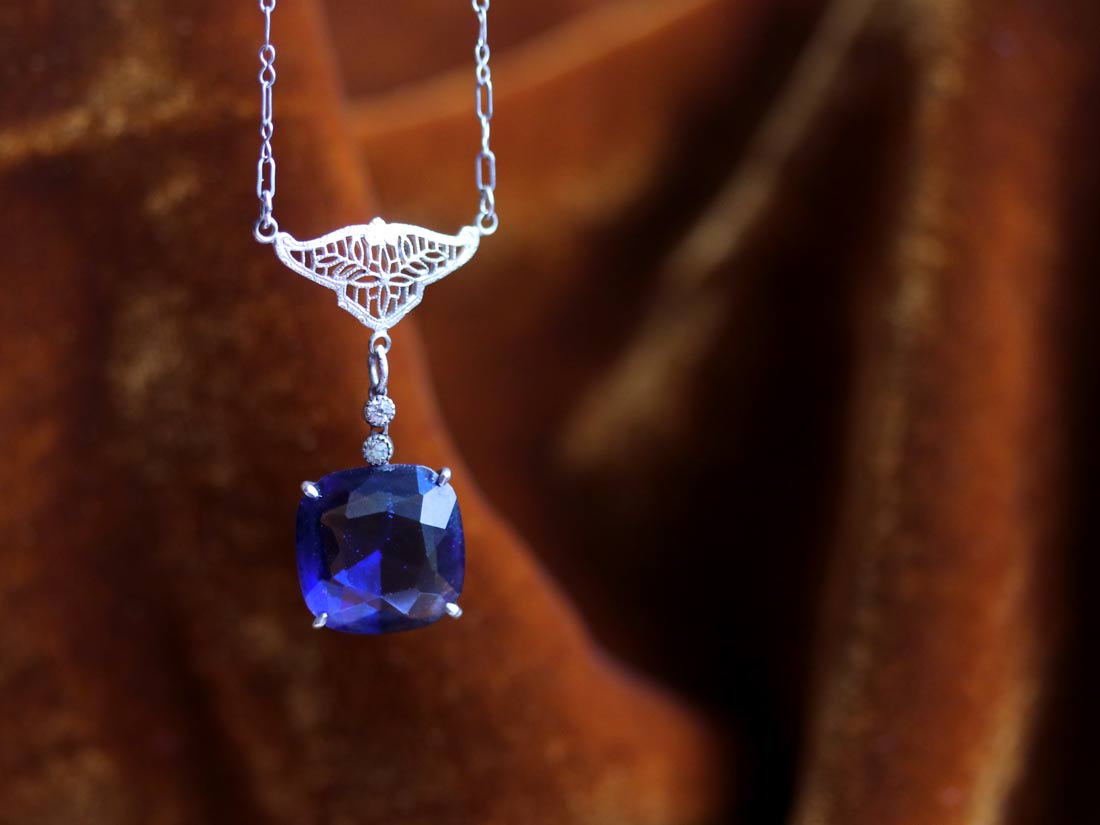15% Off Flower Designs 4/27-5/11 | Discount applied at checkout
15% Off Flower Designs 4/27-5/11 | Discount applied at checkout
15% Off Flower Designs 4/27-5/11 | Discount applied at checkout
15% Off Flower Designs 4/27-5/11 | Discount applied at checkout
Add description, images, menus and links to your mega menu
A column with no settings can be used as a spacer
Link to your collections, sales and even external links
Add up to five columns
Add description, images, menus and links to your mega menu
A column with no settings can be used as a spacer
Link to your collections, sales and even external links
Add up to five columns
April 19, 2019 3 min read
The lines created by a lavalier are sleek, elegant, and sensual. Finely crafted gold with beautiful detail, ending in a single shining gemstone, like a tear running off a cheek, or a dew drop on the tip of a leaf. Lavalier necklaces have existed in some form for hundreds of years, but really hit their stride at the start of the 20th Century. From a French actress, to flapper murderess Roxie Hart, the lavalier has been a favorite among the fashionable.
The term “lavalier” has a few different interpretations. Some use it to only refer to necklaces in which the pendant is attached on either side to a fine chain without a bail. Others use it to describe any elongated pendant from the turn of the 20th Century. The general consensus is that the pendant finishes in a single stone dangling from the base, often a pearl or diamond. A lavalier necklace is also sometimes called a Y necklace. In pendant form, the lavalier often has delicate filigree work, sometimes with feminine and floral motifs.

Lavaliers are believed to have been named after the Duchess Louise de La Vallière, the mistress of French King Louis XIV in the mid 17th Century. Some have erroneously attributed the name lavalier to the French actress Ève Lavallière, who's career spanned the end of the 1800's. In fact, Lavallière received that stage name because she often would wear that style of necklace. Although she didn't coin the term, Ève undoubtedly contributed to the lavalier’s renewed popularity at the turn of the 20th Century. The lavalier stayed popular by evolving in design along with the fashions of the time.

Clockwise from top left: Duchess Louise de La Vallière, Hollywood actress Norma Shearer wearing a diamond lavalier necklace, French actress Ève Lavallière wearing a pearl lavalier necklace.
In the last vestiges of the Victorian Era (1837-1901), lavalier pendants were sweet and detailed, with floral motifs and delicate seed pearls. In the Art Nouveau (1890-1910) style, lavalier pendants had elongated, feminine lines, with curves that mimicked the forms found in nature. Enameled leaf motifs and natural pearls were common. As fashion transitioned into the architectural opulence of the Art Deco era (1920-1939), the lavalier followed suit, with a more geometric symmetry and diamond encrusted designs. This coincided with the Golden Age of Hollywood, and actresses often wore lavalier necklaces that were perfectly suited to the plunging necklines of their silk gowns. This period marked the height of the lavalier's popularity, however modern jewelry designers continue to riff on this timeless design.

An Art Deco era lavalier necklace with blue glass and die-stamped filigree.
Lavalier pendants are universally flattering, creating gorgeous lines whether you wear them with a long chain, or higher up on the neckline. No matter your budget, you can start your very own lavalier collection. The lightweight styles of the Art Nouveau era are often more affordable due to their economical use of gold, but are no less beautiful than more expensive designs. For those who crave luxury, look to the diamond encrusted necklaces of the Art Deco era for a Hollywood-worthy style. Antique costume jewelry is also worth considering, and features quality design and craftsmanship in more affordable metals.
At Market Square Jewelers, we offer lavalier pendants from a wide variety of eras. Click here to start your lavalier collection today!

September 17, 2021 2 min read
July 26, 2021 4 min read
June 29, 2021 9 min read
Get 10% off your next purchase!

Get 10% off when you sign up for our newsletter!